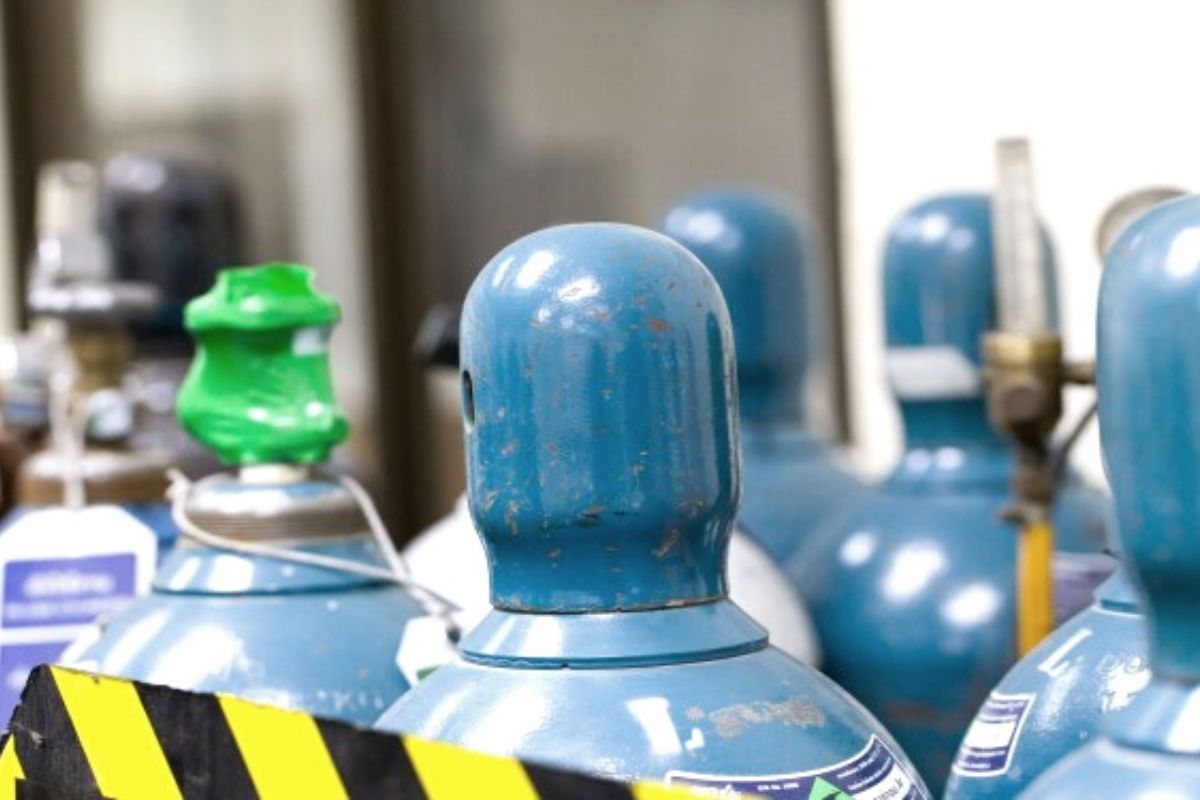Course Duration:
1 Hour
Compressed gas cylinders are common in various industries and play a vital role in various processes, from welding and cutting to operating tools and laboratories. Understanding compressed gas cylinder safety is essential to ensure the well-being of employees and prevent potential hazards. This training session provides a comprehensive overview of the basics of compressed gas, its uses, and the essential safety practices needed to work with them safely.
Basics of Compressed Gas
Compressed gases encompass a wide range of chemicals, including oxygen, argon, nitrogen, helium, acetylene, hydrogen, and more. These gases are used in both bulk systems and portable cylinders across various industries. From welding and cutting to liquid transfer and laboratory work, compressed gases have diverse applications. However, due to their nature, they also present potential hazards that require careful handling and adherence to safety protocols.
Understanding OSHA Gas Cylinder Storage Requirements
This training session serves as a general introduction to compressed gas safety, offering participants an understanding of the OSHA (Occupational Safety and Health Administration) requirements that apply to handling and storing compressed gases. OSHA has established specific guidelines for different aspects of compressed gas safety, ranging from general safety practices to requirements tailored to particular gases and applications such as welding.
Throughout this training session, we will delve into various crucial aspects of compressed gas safety. Our focus will be on the compressed gas systems and cylinders commonly used in workplaces. By gaining insight into these aspects, participants will learn how to mitigate the associated hazards and ensure their safety while working with compressed gases.
Key Topics Covered:
- General Safety: We will provide a comprehensive overview of general safety practices associated with working around compressed gases. This includes understanding potential risks, proper handling techniques, and the importance of following established safety protocols.
- Cylinder Safety: Compressed gas cylinders require careful handling and storage to prevent accidents and leaks. We will discuss proper cylinder storage, handling techniques, and inspection practices to ensure the integrity of cylinders and minimize the risk of incidents.
- Specific Gas Safety Concerns: Different gases have varying properties and potential hazards. This section will address the safety concerns associated with specific gases commonly used in various industries. Understanding the unique characteristics of each gas is essential for safe handling and usage.
By completing this comprehensive training session, participants will equip themselves with the knowledge and skills necessary to handle compressed gases safely. Adhering to OSHA regulations and following proper safety procedures is crucial to preventing accidents, ensuring a secure work environment, and promoting the overall well-being of employees.
Enhance Workplace Safety with Compressed Gas Cylinder Training
Elevate your workplace safety standards by enrolling in our Compressed Gas Cylinder Safety Training. This course equips participants with the expertise needed to handle compressed gases confidently and securely. From understanding the fundamentals of compressed gases to mastering cylinder safety and addressing specific gas concerns, this training covers it all. Take the proactive step towards a safer work environment – enroll today and empower your team with the knowledge they need to work with compressed gases safely and effectively.


